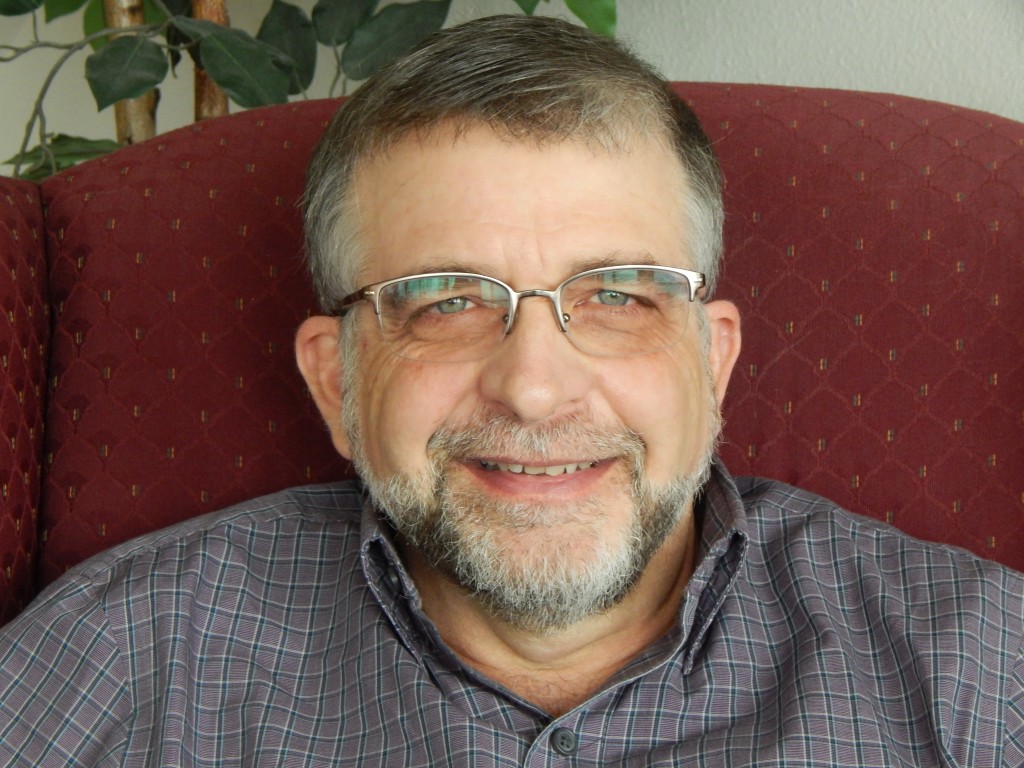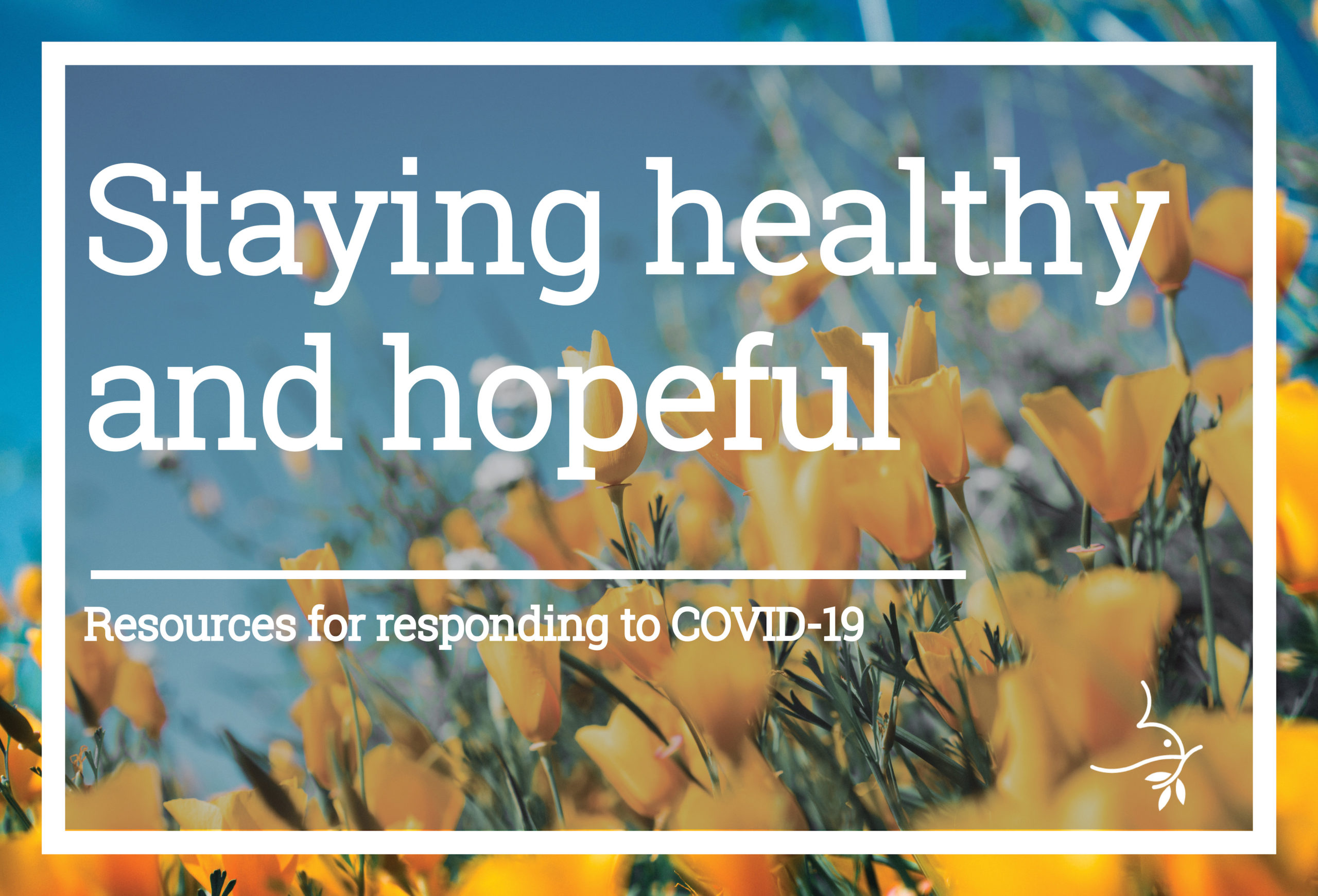Duncan Smith is director of The Corinthian Plan for Mennonite Church USA.
“Social distancing” is now a part of our everyday lexicon. There is a lot of discussion as to whether this should be called “physical distancing” because the main intent is for people to have a zone around others that lessens the spread of COVID-19, but there are still ways to socialize. It involves more than just the six-foot rule. Increasingly, most of us are being asked, if not mandated, to stay at home except for essential trips, though people who are essential personnel are still expected to go to work. Social distancing may seem severe, even draconian, but given this is the early stages of experiencing the pandemic in the United States, it is a hopeful step for limiting the spread of this illness and saving lives.
There are important reasons for social distancing. You have likely heard the term “flatten the curve” referring to flattening the rate of growth of COVID-19 and hopefully the serious cases and deaths. When people cooperate with social distancing, the increase or curve of the outbreak is slowed and flattened. Flattening the curve of the epidemic in the United States helps to keep our health care system from being overwhelmed. Italy is an example of a country where their health system was overwhelmed. For many of us, it may seem an odd concept that our hospitals and clinics in the United States would be overwhelmed and would themselves have a need to ramp up for COVID-19, but hospitals do not have extra staff ready to call in or supplies for a surge of patients. Medical goods and equipment come from a worldwide supply chain that has also been disrupted.
Flattening the curve requires community collaboration. What we are experiencing is a live test case in how we make decisions for the common good — not just of our loved ones, but neighborhoods, cities, countries and ultimately the world.
Our abrupt experience with social distancing is making us more aware of how connected we are to our various communities: family, friends, faith communities and local neighborhoods. We are extending care to all of these people when we socially distance from one another.
Remember, social distancing does not mean that we isolate ourselves from others. Connecting with one another is still important, and we are fortunate to have technology for this.
We must go with what we know and with the medical specialists and medical information regarding the contagiousness and seriousness of COVID-19. I am not trained medically, but I work with health care coverage by overseeing The Corinthian Plan, the MC USA sponsored health plan for congregational and conference staff. What I see and hear in my work is that everything being done is in order to take COVID-19 seriously and implement measures for the good of us all.
There is another serious side to the societal disruption we are experiencing. For many of us, there is a safe home to go to, the possibility of working from home and ongoing paychecks, food and other supplies, and even a welcome opportunity to be with our families. It may be a time to dive deeper into some reading or spiritual discipline, even amid anxious and uncertain times. On the other hand, most of what we know as regular business is shutting down in an unprecedented way. Many of us are losing jobs without further support or compensation. Many do not have support systems and are vulnerable physically, emotionally, or in an unsafe home environment. Xenophobia, specific to COVID-19, toward people of Asian background is on the rise as they are being wrongly targeted and blamed for the pandemic.
Amid mostly staying in our homes and not gathering in groups (Center for Disease Control and Prevention says not larger than 10), what can we do? I encourage us to consider how our faith communities can support each other and our neighbors who are most impacted by this pandemic. One idea is to contribute to local community agencies that provide basic and emergency services. We might also consider creative ways that we can respond, such as finding ways to use our empty church buildings during this time.
I also recommend recognizing and thanking those who are still “out there”: truck drivers delivering goods, mail carriers delivering mail, grocery store workers stocking shelves, farmers preparing for spring, field workers harvesting produce and (of course) health care workers. They allow us to carry on with even a small semblance of normalcy. Thank them. I was out on a walk (getting outside is a good thing to do) and ran across a mail carrier. I thanked him for “being out here.” He was appreciative and responded with the type of wry smile that communicated he was just doing his job.
Social distancing is an unusual measure that we are asked to take during this time. Though it requires a sacrifice, there is a benefit for all of us and an ability to care for one another by slowing the spread and serious cases of COVID-19. But we must also remember and respond to the challenges for those for whom COVID-19 causes particular distress.
For more information and resources for responding to COVID-19, visit Mennonite Church USA’s resource page for staying healthy and hopeful.
The views and opinions expressed in this blog belong to the author and are not intended to represent the views of the MC USA Executive Board or staff.



